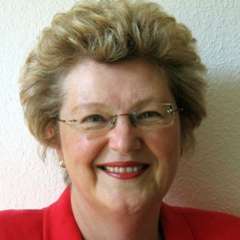The last of his 28 operas, Falstaff was only the second opera buffa composed by Giuseppe Verdi when he was almost 80 years old. With Arrigo Boito as librettist, it was adapted mostly from William Shakespeare's Merry Wives of Windsor. And now Barrie Kosky has interpreted this classic in his own way at the Komische Oper Berlin.
In Shakespeare and Verdi, Sir John Falstaff is a fat, impoverished nobleman who now, in old age, still sees himself as the dashing Sir John who can seduce any woman with his gallantry. He tries his luck on two married ladies of bourgeois society, Alice Ford and Meg Page, who are good friends and want to play a trick on him to show him how ridiculous his activities are. The opera follows these various entanglements, including young lovers and supposedly cuckolded husbands. In Kosky's interpretation, which premiered at the Festival d'Aix-en-Provence last summer, Sir John is an epicure – he has long since replaced sex with food and happily chops away in his open kitchen. Clad only in a chef's apron, he conjures up delicious culinary creations. Three recipes – starter, main course, dessert – are read aloud with decidedly erotic overtones in Italian from offstage during short set changes. Unfortunately, the recipes are not printed in the programme! The fact that in the second act, the ladies elaborately decorate multi-tiered cakes with frosting and place them around the pink four-poster bed is consistent with the punch line: sex and food go hand in hand. In a contrast to this are the drab, elderly visitors to Falstaff's pub, who plainly do not share this philosophy.
Katrin Lea Tag, responsible for stage and costumes, designs brightly coloured frocks for the merry wives and their spouses, as well as for Falstaff when he goes a-courting and proudly wears a suit matching the zingy wallpaper, including a powdered rococo wig. Incidentally, wigs play a major role in Sir John's performance; they are an expression of his mood at any given time, whether youthfully hip or wickedly Baroque can easily be determined from the headdress. When Falstaff ends the opera by kicking off the famous fugue “Tutto nel mondo è burla”, he does so bare-chested and without a wig, laughing at himself.
Superficially, the production is amusing, but it could have been so much more. Falstaff's bare bottom for all the world to see is unfortunately no substitute for good character direction. Interpersonal relationships cannot be reduced to running back and forth and smooching. In past productions, Kosky has drawn his characters, especially their human foibles, with a much finer pen. For all of Verdi's boisterous music, there are many subtleties that could have been better drawn out.
In the pit, Komische Oper's music director, Ainārs Rubiķis, focused on volume rather than nuance. The orchestra played the score accurately and precisely, but the fine details were missing. This then carried over to the singers. The all-too-subtle human drama that Shakespeare and Verdi both so finely interpret was unfortunately lost in the perpetual fortissimo that marked this performance.
Baritone Scott Hendricks sang an agile Falstaff who is not above fooling around. No wonder he has a crush on Alice, here embodied by a very vivace soprano Ruzan Mantashyan. Her friend Meg, portrayed by mezzo-soprano Karolina Gumos, was also enchanting and sophisticated. Mezzo-soprano Agnes Zwierko was convincing as the older Mistress Quickly, with age-appropriate vibrato and posturing. As the supposedly cuckolded husband, baritone Günter Papendell's Ford was as vain as Falstaff himself. The servants Bardolph and Pistol, skilfully played by James Kryshak and Jens Larsen, had ample opportunity to show off their ability to leap and roll about. Young lovers Fenton and Nannetta were portrayed here as sex-addicted teenagers, yet Oleksiy Palchykov and Alma Sadé radiated absolute innocence.
In the end, the evening had an unconventional twist. Long-time members of the ensemble, baritone Günter Papendell and mezzo Karolina Gumos, were each conferred the honorary title of Kammersänger and Kammersängerin at the hands of Berlin's Senator for Culture and Europe, Klaus Lederer. Then Kosky called on the audience to participate in the Komische Oper's fundraising campaign for Ukraine. To this end, Ukrainian tenor Oleksiy Palchykov sang a moving folk song from his homeland. Only thereafter did Kosky invite everyone to join him and the ensemble in the foyer for the first time in two and a half years for an after-show party.




